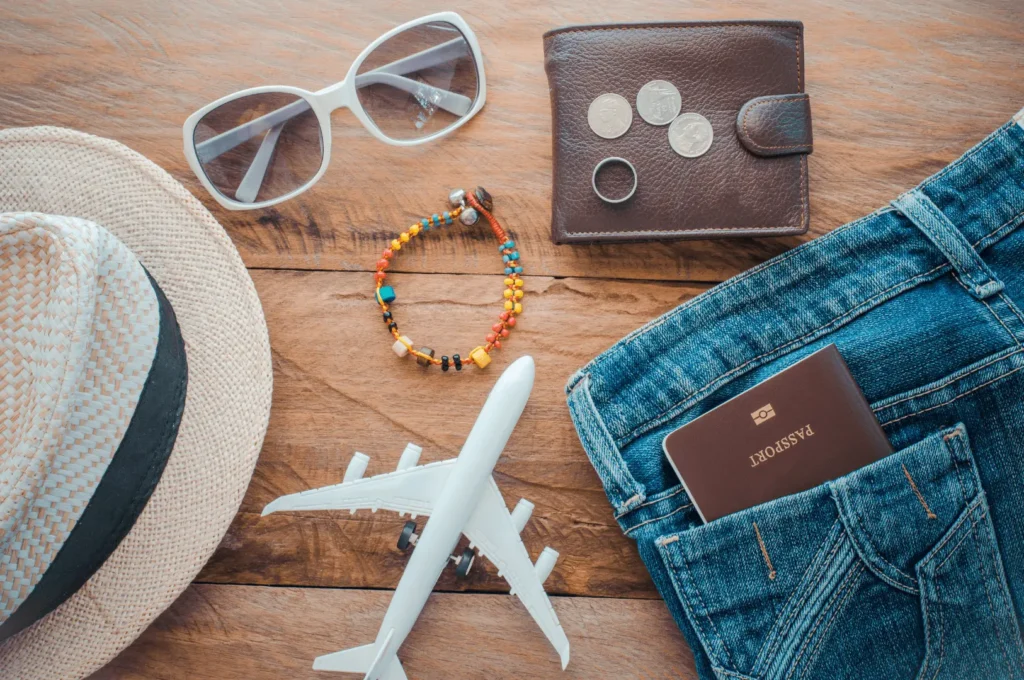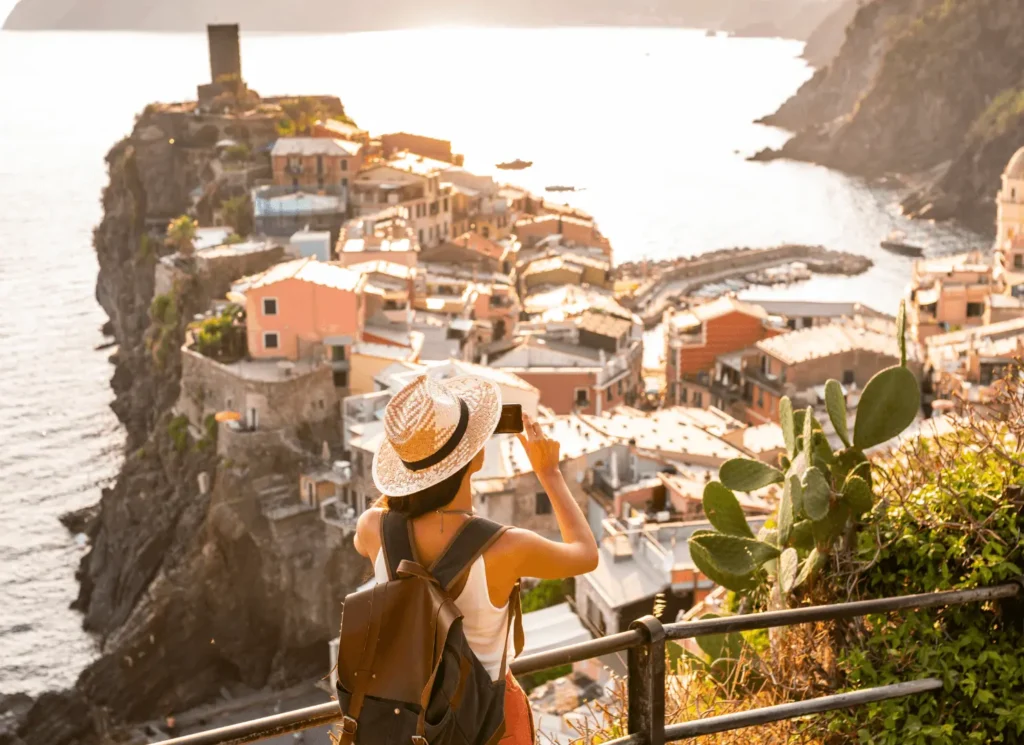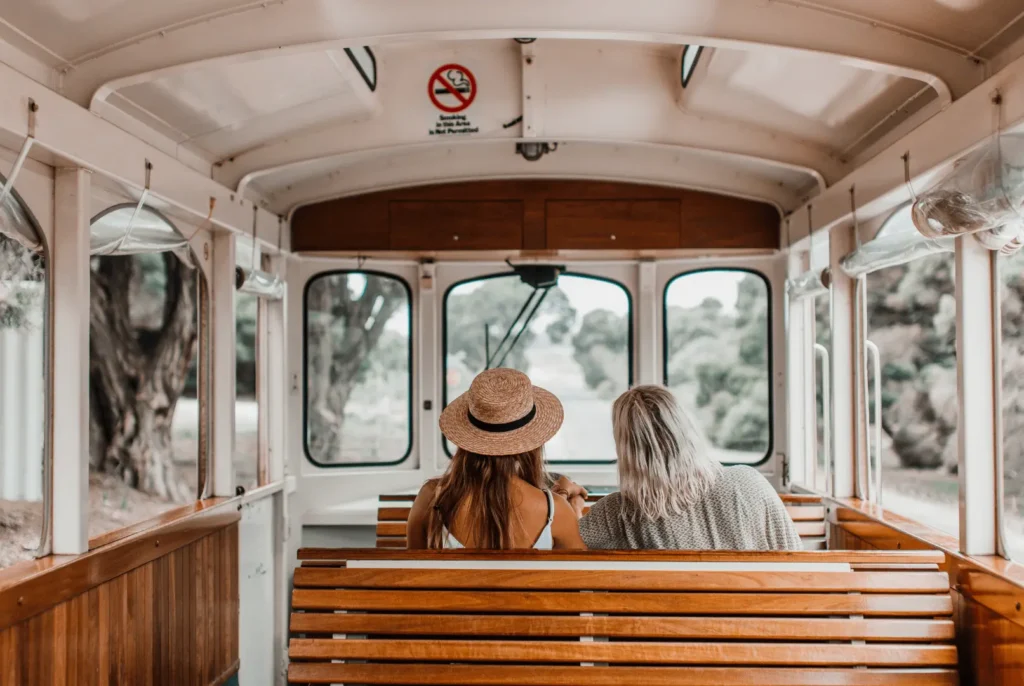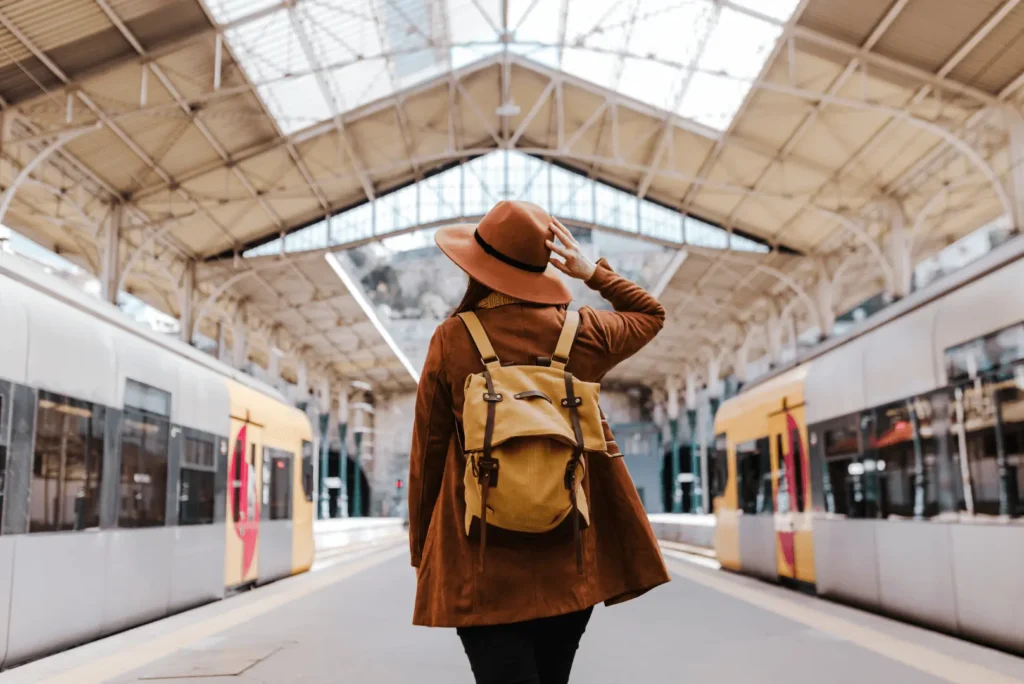
One of the biggest pleasures in life is travelling, which provides fresh experiences, cultures, and memories.
A dream vacation, however, can easily become a financial nightmare if sufficient financial planning isn’t handled.
I learned this lesson the hard way on a trip to Europe a few years ago. I had meticulously planned my itinerary, but I hadn’t given enough thought to budgeting.
Halfway through my trip, I realised I was running out of money.
That experience taught me the importance of having a well-thought-out travel budget.
That’s why I’ve written this article—to share valuable tips on creating a travel budget, ensuring you enjoy your trip without financial stress.
These tips will help you manage your travel expenses, save money, and make the most of your vacation.
Set a Realistic Travel Budget

The first step in planning a financially sound trip is setting a realistic travel budget.
Reflecting on my Europe trip, I realised that setting a budget is not just about estimating expenses; it’s about understanding your financial limits and planning accordingly.
Start by calculating your total available funds for the trip.
Include savings, potential income during the travel period, and any other financial resources.
Subtract any fixed expenses that you’ll incur during your trip, such as bills or rent.
Key Considerations:
Duration of Trip:
A longer trip will naturally require a larger budget.
Destination Costs:
Some places are more expensive than others. Research the cost of living and average tourist expenses in your destination.
Daily Expenses:
Estimate daily costs for food, activities, transportation, and accommodations.
Benefits:
Setting a realistic travel budget ensures that you won’t run out of money midway through your trip, allowing you to enjoy your vacation fully without financial anxiety.
Research and Compare Prices

When planning my next trip after the Europe debacle, I made it a point to research and compare prices extensively. This step can save you a significant amount of money and help you stay within your travel budget.
Research Tips:
Flights:
Use flight comparison websites like Skyscanner, Kayak, or Google Flights to find the best deals. Consider booking flights on weekdays, as they are often cheaper.
Accommodations:
Compare prices on different booking platforms such as Booking.com, Airbnb, and Hostelworld. Read reviews to ensure you’re getting value for your money.
Activities and Tours:
Look for discounts on activities and tours. Websites like Viator and GetYourGuide often offer deals, especially if you book in advance.
Benefits:
By taking the time to research and compare prices, you can significantly reduce your travel expenses, allowing you to allocate funds to other parts of your trip.
Travel During Off-Peak Seasons

On my subsequent travels, I discovered the benefits of travelling during off-peak seasons.
Not only are prices lower, but popular tourist spots are also less crowded, making for a more enjoyable experience.
Advantages of Off-Peak Travel:
Lower Prices:
Flights and accommodations are often much cheaper during off-peak seasons.
For instance, visiting Europe in the late fall or early spring can save you a considerable amount on airfare and hotels.
Better Deals:
Many tourist attractions offer discounts during the off-peak season to attract visitors.
Less Crowded:
You’ll have a more relaxed experience without the throngs of tourists that peak seasons bring.
Benefits:
Travelling during off-peak seasons can help you stick to your travel budget and enjoy a more serene and authentic experience.
Choose Affordable Accommodations

Oftentimes, accommodation rates are among the most expensive travel expenses.
From my travels, I’ve discovered that having a fantastic time doesn’t necessarily require staying at a luxury hotel.
There are lots of cosy and reasonably priced options available.
Affordable Accommodation Options:
Hostels:
Ideal for solo travellers or young people, hostels offer budget-friendly rates and a chance to meet other travellers.
Vacation Rentals:
Platforms like Airbnb provide a wide range of options, from single rooms to entire homes, often at lower prices than hotels.
Boutique Hotels:
Smaller, independently-run hotels can offer a more personalised experience at a fraction of the cost of large hotel chains.
Benefits:
Choosing affordable accommodations helps you save a significant portion of your travel budget, which can be used for other experiences or emergencies.
Dine Like a Local
Dining out can be one of the most enjoyable parts of travelling, but it can also eat up a large portion of your travel budget if you’re not careful.
I learned to dine like a local, which not only saved me money but also enriched my travel experience.
Tips for Eating on a Budget:
Street Food:
Many destinations are famous for their street food, which is often delicious and affordable.
In places like Thailand or Mexico, street vendors offer authentic cuisine at a fraction of the price of restaurants.
Local Markets:
Buying fresh produce and local delicacies from markets can save you money and give you a taste of local life.
Avoid Tourist Traps:
Restaurants in tourist-heavy areas are usually more expensive. Venture a few blocks away to find more reasonably priced options.
Benefits:
Eating like a local not only helps you stick to your travel budget but also gives you a more authentic taste of the local culture.
Allocate Funds Wisely
One of the most important lessons I learned from my travel experiences is the importance of allocating funds wisely.
It’s crucial to prioritise your spending based on what matters most to you.
Fund Allocation Tips:
Prioritise Experiences:
Decide which experiences are most important to you and allocate more funds to those.
Whether it’s a special tour, an adventure activity, or dining at a renowned restaurant, make sure you have enough budgeted for these key experiences.
Cut Back on Extras:
Identify areas where you can cut back. For example, you might skip buying souvenirs or opt for fewer meals at high-end restaurants.
Emergency Fund:
Always set aside a portion of your travel budget for emergencies.
This ensures that you’re prepared for unexpected expenses like medical emergencies or travel delays.
Benefits:
Allocating funds wisely ensures that you can enjoy the most important aspects of your trip without compromising your financial stability.
FAQs:
How do I estimate my travel budget accurately?
To estimate your travel budget accurately, consider the duration of your trip, the cost of living at your destination, and your personal spending habits.
Make a note of every possible expense at the beginning, including accommodation, airfare, food, entertainment, and souvenirs.
Research average costs for these categories in your destination and add a buffer for unexpected expenses.
What tools can help me research and compare prices effectively?
Several tools and websites can help you research and compare prices effectively.
For flights, use platforms like Skyscanner, Kayak, and Google Flights. For accommodations, consider Booking.com, Airbnb, and Hostelworld.
Websites like TripAdvisor and Yelp can provide reviews and price comparisons for activities and dining options.
How can I find affordable accommodations without compromising on quality?
To find affordable accommodations without compromising on quality, read reviews from previous guests on booking platforms like Booking.com, Airbnb, and Hostelworld.
Look for properties with high ratings and positive feedback. Consider staying in budget-friendly options like hostels, boutique hotels, or vacation rentals.
Also, check if the accommodation offers amenities like free breakfast or Wi-Fi, which can save you money.
What are the advantages of traveling during off-peak seasons?
Traveling during off-peak seasons offers several advantages, including lower prices for flights and accommodations, fewer crowds at popular tourist attractions, and a more relaxed travel experience.
Off-peak seasons vary by destination but generally fall outside major holidays and school vacation periods.
Research your destination to determine the best times to visit when prices are lower and the weather is still favorable.
How can I travel and yet save money on food?
To save money on food while traveling, consider dining like a local.
Eat at street food stalls, local markets, and small neighborhood restaurants rather than touristy spots.
Prepare some of your meals if you have access to a kitchen.
Take advantage of complimentary breakfasts at your accommodation, and try to avoid dining in high-traffic tourist areas where prices tend to be higher.
Conclusion:
Travelling on a budget doesn’t mean you have to sacrifice your enjoyment or miss out on memorable experiences.
By setting a realistic travel budget, researching and comparing prices, travelling during off-peak seasons, choosing affordable accommodations, dining like a local, and allocating funds wisely, you can make the most of your trip without financial stress.
These tips will help you manage your travel expenses, allowing you to fully enjoy your vacation and create lasting memories.
By following these strategies, you can ensure that your travel budget works for you, providing a framework for an enjoyable and financially sound journey.
Happy travels!
Read more:
Solo Female Travel: The Ultimate Tips, Top Destinations, and Safety Advice
Solo Travel Destination in India: Top 20 Places
Checklist for Goa Trip: Ultimate Packing Guide
30 Best Things to Do in Goa: From Beaches to Historical Sites